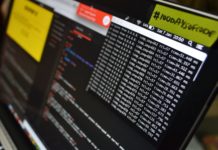With the pandemic limiting opportunities to exercise in public spaces and boosting the presence of food delivery apps in our lives, watching our diets is an important way to stay lean and healthy.
And in a similar way, with the pressures that the pandemic has placed on businesses of all sizes, leveraging technology to ensure that administrative tasks are streamlined and data well-analysed has become even more important to ensuring growth.
Constant Tong, Founder of Keto meal subscription service Ketomei, shares about his company and its goal to help Singaporeans on their Keto journey. In these efforts, they engaged the services of Counto, an automated accounting platform that has helped them manage their business and provide strategic advice. Ishi Singh, Founder and CEO of Counto, also weighs in on the importance for SMEs to effectively manage cash flow and operational costs in order to emerge stronger from the pandemic.
The Keto diet in a fried rice paradise
According to Tong, many Singaporeans have heard of the Keto diet but most of them do not have a good understanding of how keto works or the science behind the diet. “Losing weight with Keto is very different from the conventional calories’ restriction method,” he says. “Instead it is by severely restricting the consumption of carbohydrates from our daily meals.
While Tong emphasises that a Keto diet is highly effective, he notes that it is difficult to maintain in Singapore because of its food culture which tends towards a carb heavy intake. “My customers are split into two groups,” says Tong, “People who are on Keto and need a convenient and enjoyable service to maintain their lifestyle, and people who are new to Keto and are looking for ways to lose weight or meet certain health goals, such as reversing Type 2 Diabetes.”
Despite the cultural hurdles, Tong finds that Singaporeans are open, and continues to provide tools and free workshops to help their customers understand how it works, encouraging them to commit and achieve their goals.
Achieving healthy business practices as a startup
While his company helped customers manage their bodies and diet, Tong realised that he needed help with bookkeeping and accounting, as he was occupied with the other important aspects of driving sales, managing operations and growing the company. However, as a growing startup, he found it hard to hire the CFO he needed to ensure that his cash flow and operational costs were well managed.
Such concerns are not unique to Ketomei. Says Ishi, “given the importance of cash flow during uncertain times like this, companies need to maximise working capital, and think about their entire business ecosystem.
“Are there alternate revenue streams to consider? Can you automate your account receivables process to decrease billing errors? What’s the quickest way to reduce your variable costs?
“However, for entrepreneurs who often find themselves multitasking, finance management may not be top of mind,” he admits.
Technology has been one way to bridge the gap between needs and resources. Counto’s particular solution leverages AI to automate repetitive and predictable transactions, lowering the cost for the business owner. This appealed to Tong, who also had a background in tech before entering the food sector.
While many businesses have onboarded tech during the pandemic, Ishi notes that some might not realise how technology may make the choice of tech-enabled accounting solutions comparable to hiring a traditional accountant, since they are also able to effectively manage processes and also analyse data to develop appropriate strategies.
Continuing to fuel the Keto journey
As a company that was digital and fully online from the start, Ketomei has had a relatively smoother journey than many others in the Food and Beverage (F&B) industry. Tong is not sitting back however. “We are constantly developing technology and new user experience to not just sell our meals and packages but also help our customers achieve their goals,” he says.
Reflecting on his company’s journey through the pandemic, Tong acknowledge that F&B has always been a difficult sector, made even more challenging by the pandemic. “In such a landscape, F&B entrepreneurs should focus on capturing new trends, and mastering digital marketing,” he advises.
“They should also learn about how to use technology to manage key aspects of the business, such as production planning, inventory control, logistic, ingredient cost management and so on.”
The technology available is keeping apace of the needs and expectations of business owners. Says Ishi, “Increasingly, clients expect anytime-anywhere access to information, and a digital-first user experience.
“Due to the large volumes of data and cumbersome paper-based processes, the potential for AI and automation to disrupt the industry is huge.
“In the future, accounting professionals will spend less time on manual compliance activities, and more on forecasting, strategy, and risk management.
“The rise of AI and machine learning will mean that more accountants are able to use data analytics to extract real value for their clients.














